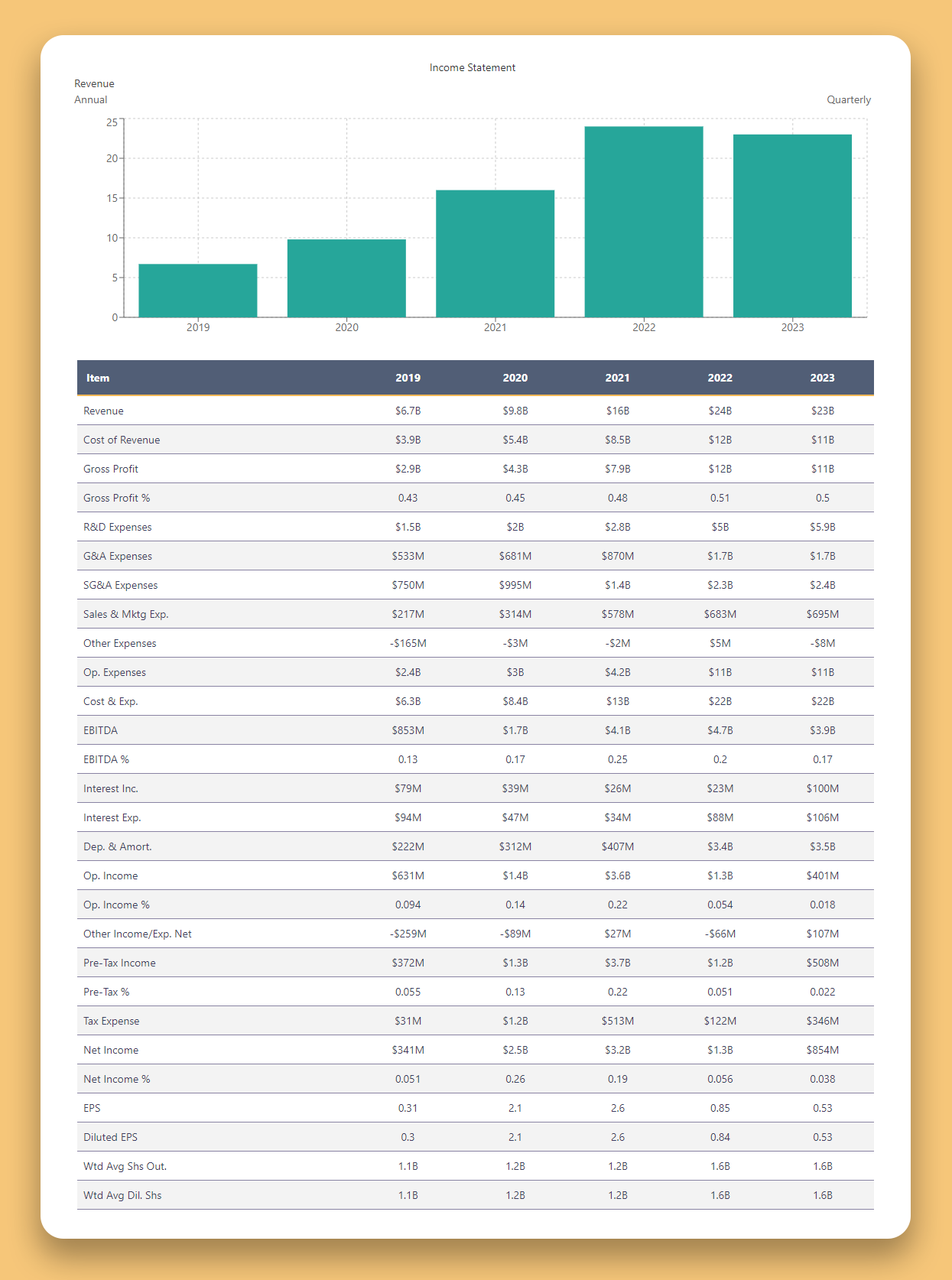AMD "Inside" +115% Surge Positions It as the AI Leader Over Intel 📈
🚨🚨 Don't Miss Your Chance Before Price Goes Up. 💥💥
The competition between AMD 0.00%↑ and INTC 0.00%↑ has heated up, especially with the growing importance of artificial intelligence (AI) in today's technology landscape. AMD has emerged as a strong contender, boasting a staggering 115% increase in data center revenue, and often outperforming Intel in key areas that matter most. Let's look into why AMD is a better choice than Intel, particularly as we deepen into the AI revolution.
For Context: Previous Analysis
ICYMI:
Superior CPU Performance
Over recent years, AMD's Ryzen processors have consistently delivered impressive performance, often surpassing Intel's chips, especially when considering the price-to-performance ratio.
Take the Ryzen 9 7950X3D for example:
Cores and Threads: 16 cores and 32 threads
Clock Speed: Base clock of 4.2 GHz, boost up to 5.7 GHz
Cache: 144MB total cache (including 128MB of 3D V-Cache)
Thermal Design Power (TDP): 120W
When compared to Intel's top-tier processors, the Ryzen 9 7950X3D often leads in gaming and multitasking benchmarks while consuming less power. This efficiency translates to better performance and lower energy costs.
YTD Performance
GPU Expertise: AMD's Critical Advantage in AI
AI workloads are highly parallel and benefit greatly from powerful GPUs. AMD's extensive experience in GPU design gives it a significant edge over Intel, which is still developing its GPU capabilities.
CDNA Architecture: AMD's Compute DNA (CDNA) architecture is purpose-built for data centers and AI applications.
The upcoming MI350 series, based on CDNA 4, is expected to deliver 35 times better AI inference performance compared to the current MI300 series.
AMD is matching competitors by releasing annual updates to its AI accelerators, ensuring they stay at the forefront of technology.
Integrated AI Solutions
AMD's strength lies in its ability to produce both high-performance CPUs and GPUs, allowing for seamless integration and optimization for AI workloads.
Ryzen AI: AMD's Ryzen AI series for laptops brings on-device AI processing to consumers.
Performance: Up to 50 TOPS (Trillions of Operations Per Second) with the XDNA 2 architecture.
Efficiency: Three times the performance improvement over the previous generation.
Capabilities: Supports up to 12 high-performance CPU cores with 24 threads, making it ideal for AI applications on the go.
Data Center Dominance
In the realm of large-scale AI deployments, data centers require processors that can handle immense workloads efficiently. AMD's EPYC processors are making significant strides in this space.
EPYC "Turin": AMD's upcoming Zen 5-based EPYC processors promise unprecedented performance.
Core Count: Up to 192 cores and 384 threads per socket.
Upgrade Friendly: Socket-compatible with current platforms for easy integration.
Architecture: Zen 5C architecture, improving multi-threaded performance by packing 16 cores into a single chipset.
Financial Performance and Market Position
AMD's strategic focus on AI and high-performance computing has translated into robust financial growth and a stronger market position.
Revenue Growth: In Q2 2024, AMD reported revenue of $5.8 billion, up 9% year-over-year.
Data Center Growth: The Data Center segment reached a record $2.8 billion in revenue, a 115% increase from the previous year.
Gross Margin: Improved to 49%, up 3 percentage points from the same quarter last year.
Market Capitalization Comparison
As of October 2024, AMD's market capitalization stood at $266 billion, significantly higher than Intel's $102 billion. This reflects investor confidence in AMD's growth potential and competitive edge in the AI market.
Technical Analysis
From an investment perspective, AMD's stock performance has been impressive, offering better returns compared to Intel.

















